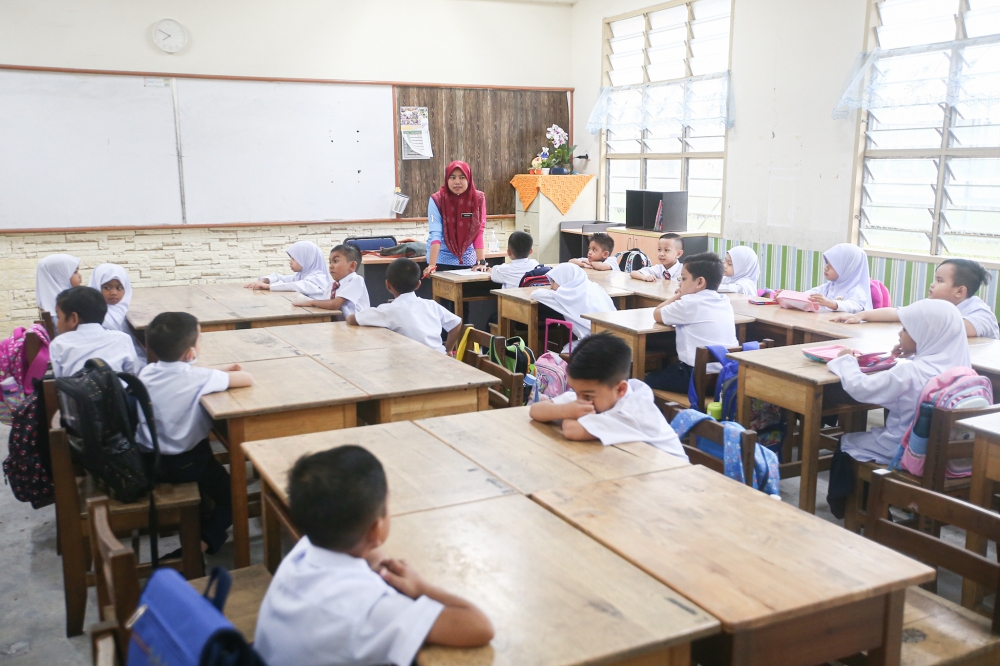FEBRUARY 9 — “That’s what I do. I tinker.” — Tony Stark
The recent news report that Malaysia’s education is possibly among the “worst in Asean” is understandably of some concern. No matter the accuracy of basing this judgment on the country’s performance for the Programme for International Student Assessment (PISA), there is almost no doubt that our education system needs an overhaul of sorts.
One area I suspect is a perennial concern is the never-ending fear our students have of exams. If I’m right then I wonder if we could tackle this issue by thinking about the phenomenon of tinkering.
Here’s the rub: I can 100 per cent recall feeling tonnes of fear during my primary and secondary school days, especially during exam season. But I don’t recall ever tinkering.
Those years I approached my subjects purely in an examination-centric way. This is to say that my only reason to learn whatever I had to learn was to score as high I could on an official assessment and thus my chief approach was memorisation of what I had to write down should a given question appear.
That was it.
There was no enjoyment, no experimentation, no long chats with friends about what I was doing or learning, no voluntary trial-and-error, no random testing or modification of some variable just to see what would happen, etc. — in other words, no tinkering.
Sadly I fear this is more or less how 90 per cent of our school students approach their studies. Academia is experienced primarily as an institution and “externally imposed”.
There is no joy, no inspiration, no fun; it’s sheer pressure to exceed in some superficially extrinsic formal manner.
Now compare how kids approach their schoolwork to how they approach something they love and enjoy. I think here about how some of my nephews approach chess or the Rubik’s cube.
They google and read up openings or cube-solving tactics on their own initiative. They join FB groups or similar chats to which they’re proud to contribute ideas. They beg their parents to buy books and follow them to tournaments.
And, naturally, not unlike Tony Stark in his lab, they spend hours practising, testing out various approaches, methods, get frustrated when they fail, try again, etc.
That’s tinkering. That’s passion and, eventually, mastery.

Tinkering and fear as mutually exclusive
So why don’t more kids tinker in school? I think it’s due to fear.
Fear of failure, instilled since primary school. Fear of not achieving academic success thereby being branded a failure or average or whatever.
Students are simply NOT going to tinker with subjects for which their teachers and parents demand non-stop do-well-now results. That sort of mentality goes against the spirit of tinkering which is about deliberately (and joyously!) getting things ”wrong” in order to make things better!
With tinkering, the journey (of discovery, of creation, of playing, of learning, etc.) is more important than the end-product.
With tinkering, a person isn’t mainly obsessed with “becoming the best” as he or she is about “learning how to be the best”. That’s why in areas where we tinker, the tinkering doesn’t stop once we’ve reached a certain standard of mastery. If anything else, we’re keen to learn and improve even more!
Compare this to the standard government exam in which even the top students end up forgetting their studies a week or two after they’ve “vomited” out their answers during the three-hour exam. That’s certainly me when it came to my SPM and A-Levels.
But my doctorate studies? I’m still keen on what I was researching (psychoanalysis and politics) more than half a decade after graduation. I write about Žižek, I tweet about his theories, I apply Freudian jokes during lectures, I play around with thoughts of psychoanalysing Malaysian politicians during walks, I crack jokes based on Lacan’s teachings, etc.
In other words (and again), I tinker. That’s how I know I love what I’m learning.
So I guess the questions we should ask are: What do we observe our children tinkering? How can we get them to tinker more and, thus, fear less?
* This is the personal opinion of the columnist.






















